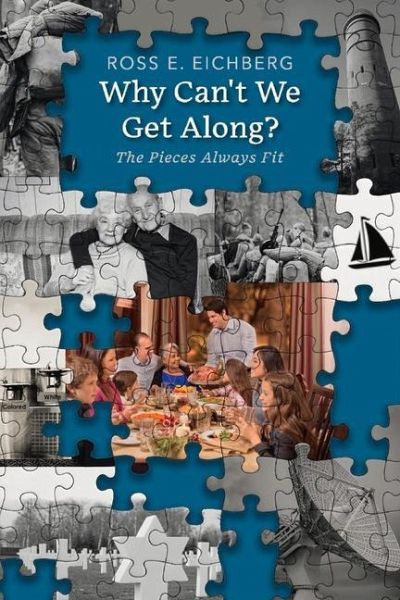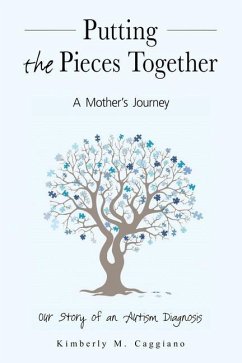
Why Can't We Get Along?: The Pieces Always Fit
Versandkostenfrei!
Versandfertig in über 4 Wochen
19,99 €
inkl. MwSt.

PAYBACK Punkte
10 °P sammeln!
Rick and Trina were ordinary children of Jewish immigrant families in extraordinary times. They came of age while the world burned, first in the Depression and then in the Second World War. Rick endured cruelty from his mother and brother allegedly because of his stammer, and then was drafted into the Army. Trina was bullied for being fat, and her father required her to drop out of college to return to the family farm to take care of her mother. They found each after the War, fell in love, and stayed happily married for almost sixty five years. "Why Can't We Get Along? The Pieces Always Fit" i...
Rick and Trina were ordinary children of Jewish immigrant families in extraordinary times. They came of age while the world burned, first in the Depression and then in the Second World War. Rick endured cruelty from his mother and brother allegedly because of his stammer, and then was drafted into the Army. Trina was bullied for being fat, and her father required her to drop out of college to return to the family farm to take care of her mother. They found each after the War, fell in love, and stayed happily married for almost sixty five years. "Why Can't We Get Along? The Pieces Always Fit" is the story of a successful marriage with "successful" written in small letters. Neither Rick nor Trina won a Nobel Prize or appeared on the cover of Time Magazine; they were "just" part of the American middle class. Their accomplishments and their stories were taken for granted by their own children, Karen and Sandra. And those daughters just could not understand why their father, who was liked by many, was despised by his own mother, brother, and son-in-law. After Rick's death, the daughters prepare for the estate sale in their parents' house and reminisce over some of the many stories their parents told and retold, spanning several generations. They look for clues in the stories to understand why three of the people who should have been closest to their father hated him so much. They "connect the dots" separated by generations to deduce why their family followed its particular path and come to terms with some of the Jew/Gentile and Black/White paradigms. They grapple with the social currents of the twentieth century that continue to shape perspective and touch their family in the twenty-first century: race, ethnicity, sibling rivalry, and abusive family relationships. "Why Can't We Get Along? The Pieces Always Fit" will resonate with every Baby Boomer. Readers will want to call their parents and tell them "I love you"...or..."I'm sorry"... or both.












